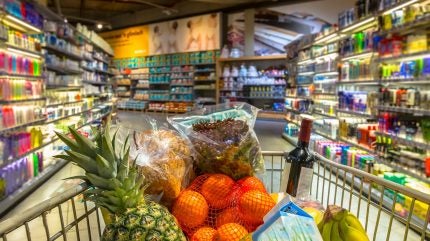
The Dutch competition watchdog has launched an investigation into the price of grocery products in the country’s supermarkets.
In a statement, the Netherlands Authority for Consumers and Markets (ACM) said the probe was prompted by claims the prices of “certain food products” are higher than in unspecified “neighbouring countries”.

Discover B2B Marketing That Performs
Combine business intelligence and editorial excellence to reach engaged professionals across 36 leading media platforms.
Dutch food industry association FNLI said it “welcomed” the move to examine whether there are “bottlenecks” in the market.
The investigation will look at “the price breakdowns and price formations for products in the average grocery basket of consumers”, the ACM said.
As part of the investigation, the watchdog will look into the profit margins of suppliers and retailers, as well as the differences in prices on offer in Dutch supermarkets and their peers elsewhere.
“ACM can make recommendations to the Dutch legislature to reduce or solve any problems,” it added. “If ACM finds any indications that violations have been committed, it can also take enforcement action.”

US Tariffs are shifting - will you react or anticipate?
Don’t let policy changes catch you off guard. Stay proactive with real-time data and expert analysis.
By GlobalDataThe findings from this market investigation are expected to be released in the middle of next year.
In a statement, FNLI said store prices are “determined by supermarkets” and added food prices in the Netherlands were 1.1% lower than the EU average.
It pointed to “legitimate reasons” why prices may differ in the Netherlands compared to other countries, including fiscal policy and the competitive make-up of particular sectors.
Nevertheless, the trade body said the ACM’s investigation “should contribute to a more objective discussion about rising food prices”.
It added: “The FNLI understands consumers’ concerns about supermarket price increases due to food inflation. At the same time, food manufacturers have long been concerned about market conditions and the ever-increasing pressure on the lowest price from purchasing alliances and supermarkets. This development is at odds with shared sustainability goals. As a result, there is increasingly less room for the necessary investments in sustainability.”





